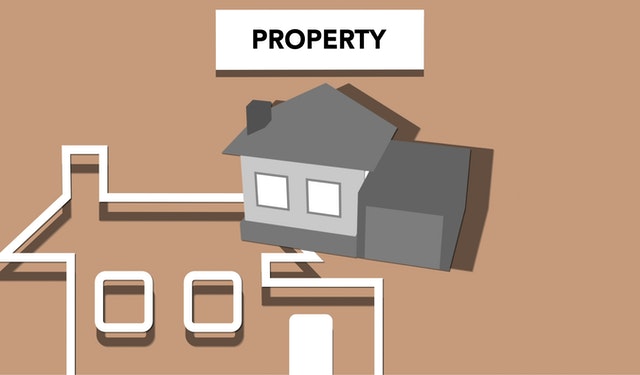Binding buyer and seller to an offer to purchase a home requires legal written bids and proper agent communication protocols to confirm acceptance.
There are essential elements to create a legally enforceable contract between two parties. Still, there are also crucial protocols that must be followed between the buyer, seller, and both real estate agents to solidify the creation of a legal contract. If these steps are correctly followed, both parties will be protected from the other party backing out of an offer leading to great disappointment for all involved.
When a potential buyer views a desirable home and has determined how much house they can afford and pre-qualify for a mortgage, performed a CMA (comparative market analysis) to determine a fair market value for the property with a real estate agent representing their interests, and has signed a buyer’s agency agreement to protect their confidentiality during negotiations, the time has come to draw up an offer to purchase document.
Binding a Party to an Offer to Purchase in Real Estate – Acceptance and Communication Requirements
If, in a typical scenario, a person makes an offer in writing with a real estate agent on a home they desire to buy, several vital steps must occur to make this official. First, a formal offer to purchase form must be drawn up with a licensed real estate agent and signed by the potential buyer.
Next, the buyer’s agent (or often called the “selling” agent) must present this offer in writing to the homeowner’s agent (called the listing agent). This offer cannot be “illusory” in nature or have vague details about items such as financing or closing dates. Next, the seller must receive the request from the listing agent and communicate to their agent that they accept the offer and all the terms and sign the offer and give it to the agent. It is considered poor practice for a listing agent to call a buyer or a buyer’s agent to notify that a seller has “accepted an offer” without visually confirming the offer is indeed signed by a seller.
Until the seller signs the form and their agent communicates to the party making the offer that the seller has signed the document and officially accepted the offer, the buyer can still back out at any time. If an owner signs the form late at night to sell, but their real estate agent does not notify the buyer or the buyer’s agent until the morning, technically, the offer could be removed, and the buyer could change their mind. Or, if a buyer is notified by their agent that a seller has “accepted their offer,” but the seller has not signed the form, the seller could still change their mind and back out as well.
Counteroffer Considerations When Making an Offer on a Home as a Buyer
Counteroffers also serve as a point of confusion in the process. A counteroffer is technically the rejection of the initial offer and therefore requires a separate contract to be submitted with new terms. Due to timing issues with multiple bids submitted to a seller, it is essential to understand.
If a seller rejects an offer’s initial terms and counters with a different price or other words, that contract is vulnerable to other proposals submitted. If another request is presented with the same terms as the counteroffer from another potential buyer, the first buyer may lose the property. The seller maintains the right to accept another offer while the first party still considers a counteroffer, even if the counteroffer states a deadline time to respond.
A counteroffer is not an exclusive right to buy scenario, and buyers should be aware of this when considering a counteroffer from a seller. It would also be in the buyer’s best interests to place a time limit on offers to be accepted to avoid a seller sitting on one provide while waiting for others to come in. A proposal to purchase is terminated once a seller rejects the current terms of an offer or fails to accept it within a prescribed time by a buyer.
Understanding the Role of Real Estate Agents in Communication Between Buyer and Seller for Offers to Purchase a Home
An essential concept in this portion of real estate is that real estate agents and their clients “walk in the same shoes.” It means that any communication to an agent or the client (their “principal”) is viewed the same. So, it doesn’t matter if the seller or the agent representing the seller (listing agent) communicates with the buyer or the buyer’s agent (technically the “selling agent” even though they represent the buyer); the legal requirement of acceptance and communication is finished. Overall, everyone is more protected once the document is signed, delivered and officially created the contract.
Suppose a buyer refuses to use a buyer agency agreement before submitting a written offer (a decision strongly discouraged to do for the buyer’s best interests). In that case, the agent working with the buyer has to be a “subagent” of the seller and communication with this agent also does not legally cross the line of two parties. The agent’s payment with the buyer is the same in either scenario (usually by the seller); the difference is which party that agent owes loyalty to.
If the seller subagent option is elected (meaning the buyer refused to sign an exclusive written buyer agency agreement), then the buyer must be communicated with directly to be considered accepted by the seller legally. This technical detail may often go overlooked in this scenario. It is yet another example of how a buyer’s interests are not protected without a buyer agency agreement, as their agent extends the seller in this legal aspect.
Legally Acceptable Forms of Communication Between Buyers and Sellers and Their Agents to Create Contract Formation in Real Estate
Acceptance can be communicated in many ways: either verbally (orally), by mail, email, fax, or old-fashioned days as a telegram. In addition, a law called the UETA (Uniform Electronic Transmission Act) allows electronic communication and even electronic signatures (such as writing one’s name at the bottom of an email) as legally acceptable.
One exception is text-messaging, as according to the UETA rules about electronic signatures and communications, text messages are not considered an option of transmission. Therefore, as a practice, if texting is to be used, other forms of communication need to be immediately initiated to complete the process legally.
Also, the process of a seller mailing the signed offer to the listing agent (or seller subagent if the buyer does not have a buyer agency agreement) does not count as communicating acceptance, as the threshold to the buyer or buyer agent has not been crossed; legally that is considered communicating with the same person or entity.
The mailbox rule in effect in real estate transactions means that the moment the signed contract with a proper label to the other party is placed in the U.S. mail (by the mailbox or post office), the contract is legally formed at that moment. An offer by a potential buyer can state-specific ways to be notified by acceptance, such as only electronically or only by mail if desired.
Due to the critical protocols in creating a bound contract from an initial offer to purchase, buyers and sellers should always consider the numerous benefits of a licensed real estate agent protecting their interests in real estate. All the same, protocols would apply with a sale by owner (FSBO) between a buyer’s agent and the seller listed above, minus the listing agent’s participation. Without representation, many opportunities for losing negotiation footing and best interests may occur through this complicated process, the buyer due diligence period, and closing as well.













